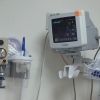Dehydration and Its Surprising Effects on Blood Pressure
- Understanding the Concept of Dehydration
- The Relationship between Dehydration and Blood Pressure
- Ways Dehydration Impacts Blood Pressure
- Real - Life Examples of Dehydration Affecting Blood Pressure
- Preventing Dehydration for Healthy Blood Pressure
- Taking Steps to Safeguard Your Health
Understanding the Concept of Dehydration
Dehydration occurs when our body loses more fluids than it takes in. This can happen due to various reasons such as excessive sweating during intense physical activity, not drinking enough water throughout the day, vomiting, or diarrhea. Our bodies are made up of a significant amount of water, and this water is essential for numerous bodily functions. When we become dehydrated, these functions start to be affected, and one of the areas that can be significantly impacted is our blood pressure.

The Relationship between Dehydration and Blood Pressure
Blood pressure is the force exerted by the blood against the walls of our arteries as the heart pumps it around the body. A healthy balance of fluids in our body is crucial for maintaining normal blood pressure. Dehydration disrupts this balance, and the body has to adapt in various ways, which in turn affects blood pressure levels.
Premier Cardiovascular Institute in Dayton
1530 needmore road
1530 Needmore Rd #300, Dayton, OH 45414, USA

Ways Dehydration Impacts Blood Pressure
Reduced Blood Volume
One of the primary ways dehydration affects blood pressure is by reducing blood volume. When we are dehydrated, our body loses water, and this leads to a decrease in the amount of blood circulating in our vessels. With less blood volume, the heart has to work harder to pump the remaining blood to all parts of the body. To compensate for the reduced volume, the heart may increase its pumping rate, and the blood vessels may constrict. This constriction of blood vessels, known as vasoconstriction, increases the resistance in the arteries, causing blood pressure to rise. For example, in a study on athletes, it was found that those who became dehydrated during a long - distance run experienced a significant increase in blood pressure due to the reduction in blood volume.
Imbalance in Electrolytes
Dehydration often leads to an imbalance in electrolytes such as sodium, potassium, and chloride. These electrolytes play a vital role in regulating the body's fluid balance and the function of cells, including those in the heart and blood vessels. An imbalance in sodium, for instance, can disrupt the normal electrical signals in the heart and affect the tone of blood vessels. If the sodium levels are too low (hyponatremia) as a result of dehydration, it can lead to swelling in cells, including those in the blood vessels, which can further impact blood pressure. A friend of mine who had a bout of food poisoning and severe diarrhea became dehydrated. Along with feeling weak, he also noticed that his blood pressure was fluctuating. After getting rehydrated and having his electrolyte levels corrected, his blood pressure returned to normal.
Activation of the Renin - Angiotensin - Aldosterone System (RAAS)
When the body senses dehydration, it activates the Renin - Angiotensin - Aldosterone System. The kidneys release an enzyme called renin, which starts a series of chemical reactions. This ultimately leads to the production of a hormone called angiotensin II, which causes blood vessels to constrict. Additionally, aldosterone is released, which promotes the reabsorption of sodium and water in the kidneys. The net effect of this system activation is to increase blood pressure in an attempt to maintain adequate blood flow to vital organs. However, chronic activation of this system due to persistent dehydration can have long - term negative impacts on blood pressure regulation.
Real - Life Examples of Dehydration Affecting Blood Pressure
Take the case of Sarah, a fitness enthusiast. She went on a hot summer day for a long - distance bike ride without carrying enough water. As the ride progressed, she started feeling light - headed and dizzy. When she finally stopped at a rest stop and checked her blood pressure using a portable monitor, she was shocked to see that her systolic blood pressure had jumped from her normal 120 mmHg to 150 mmHg. It was a clear case of dehydration - induced high blood pressure.
Another example is Mark, an elderly man who had a mild stomach bug. He lost a significant amount of fluids through vomiting and diarrhea. Over the next few days, he noticed that he was feeling more fatigued than usual, and his doctor found that his blood pressure had dropped to a dangerously low level. This was because his body's attempts to conserve fluids and maintain blood pressure were overwhelmed by the severity of dehydration.
Preventing Dehydration for Healthy Blood Pressure
Drinking Enough Water
The simplest and most effective way to prevent dehydration is to drink an adequate amount of water throughout the day. The general recommendation is to drink at least 8 glasses (about 2 liters) of water per day, but this can vary depending on factors such as activity level, climate, and individual health conditions. Carry a water bottle with you wherever you go, and make it a habit to take sips regularly. For example, if you work in an office, set a reminder on your phone to drink water every hour.
Consuming Hydrating Foods
Besides water, certain foods can also help keep you hydrated. Fruits and vegetables with high water content, such as watermelon, cucumbers, oranges, and tomatoes, are great options. Incorporating these into your diet can supplement your fluid intake. For instance, having a slice of watermelon as a mid - afternoon snack not only satisfies your sweet tooth but also helps keep you hydrated.
Monitoring Fluid Loss
Be aware of situations where you are likely to lose a lot of fluids. If you are exercising vigorously, especially in hot weather, or if you have an illness that causes vomiting or diarrhea, take extra care to replenish your fluids. You can also monitor your urine color. Pale yellow urine is a sign of good hydration, while dark yellow urine indicates that you may be dehydrated and need to drink more fluids.
Taking Steps to Safeguard Your Health
As we've seen, dehydration can have a significant impact on blood pressure, and it's crucial to take steps to prevent it. To make sure you stay hydrated, consider using a high - quality water bottle with measurement markings, like the [Product Name]. This can help you easily track your daily water intake. By being proactive about hydration, you can maintain healthy blood pressure levels and overall well - being. Don't let dehydration sneak up on you and affect your blood pressure; start making hydration a priority today.






















Premier Cardiovascular Institute in Dayton
1530 needmore rd dayton ohio
1530 Needmore Rd #300, Dayton, OH 45414, USA